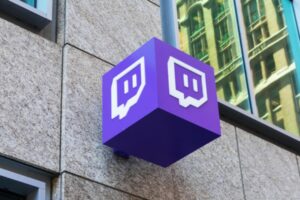
Trihex
Other Interests
Family
He and his mom moved in with his grandparents in Louisiana in 2001 after his parents divorced. He also has a dog.
Gaming Origins
Trihex grew up playing video games after receiving a Sonic 2 Sega Genesis bundle as a present from his parents in 1994. He first started speedrunning for fun in late 2004 with Yoshi’s Island on his Game Boy Advance SP. When he started speedrunning, he discovered that he enjoyed the aspect of being able to track progression of his skill and understanding of a game’s mechanics, as well as the high replay value that it added to his favorite games.
In 2001, his parents started paying him to do chores and he would then save it to spend on video games. As a middle-schooler, he was more focused on the Yu-Gi-Oh! TCG than video games but gave up on it in high school because he felt that the game had become broken.
However, he only realized that there were other speedrunners a couple of years later, when he picked up a copy of Electronic Gaming Monthly from the convenience store and received a free DVD of speedruns with it. He then started participating on speedrunning forums and sharing tricks with other speedrunners. At the time, everyone just did it for fun, as there was no way to monetize the hobby. He especially got into speedrunning once he Tool-assisted (TAS) speedrunning.
Although he had been speedrunning and on forums for years, it was only when the first Games Done Quick (GDQ) event happened in 2010 hat he felt that he was part of a real community instead of just playing with and against himself.
Prior to streaming fulltime, he worked as waiter for eight years, including 30-hours per week while he was studying Animation in college. That was on top of his bi-weekly streams.
Professional Gaming
Trihex started streaming twice a week on Justin.tv in February 2011 after watching Narcissa Wright clear Ocarina of Time in 20 minutes and realizing that there were people who would be willing to watch him attempt speedruns and learn game quirks and secrets. He was still in college at the time and was therefore only partnered with Twitch in May 2013. It appealed to him, because he wouldn’t have to train alone anymore.
In 2012, he dropped out of college to pursue his dream while his channel was building momentum, and worked four days a week in the meantime. However, he only became a fulltime streamer in August 2015 after paying off his college debts and ensuring that he had enough savings to tide him over for a while.
His mother has always been supportive of his career choice, but he didn’t tell his grandmother about his career choice until he was making enough money to prove its viability. After a year of streaming, Twitch made his face into an emote, mainly because of his being one of the earliest streamers who succeeded on the platform.
His language isn’t appropriate for children.
Relationships
He has a long-term girlfriend.
Income
Trihex has ~4,800 subscribers, which should minimally earn him ~$12,000 USD per month, excluding additional revenue from tiered subscribers, sponsorships, tips, advertisements and Twitch cheer bit contributions.
Streaming Hours
While he doesn’t have a set schedule, he tends to stream daily for between 5.5 – 13 hours per session.
Quotes
-
[Regarding growing your stream,] Quality, first. People have to care and want to watch your stream. Being exceptional is your biggest tool to growing IMO. All else is complimentary, especially if you lack that foundation. If you're a fun-loving, positive-mentality, accessible streamer who loves Pokémon, video games, nerd culture and "having a rad time" -- you're as generic as wall paint. And there's like ... (literally) 3.2 million active broadcasters on Twitch monthly who are just like you. No amount of consistent schedule, bots, follower alerts, or other things will help if the content is subpar in the first place. And to be transparent, this advice is mostly a jab at some who have entitlement to growth purely on basis they stream 60-80hr a week. If you're grinding that hard and not growing, it's important to reflect upon the content you're producing and the environment you're in and how discoverability works there (Twitch vs YouTube Gaming, for example have huge differences for this).




















